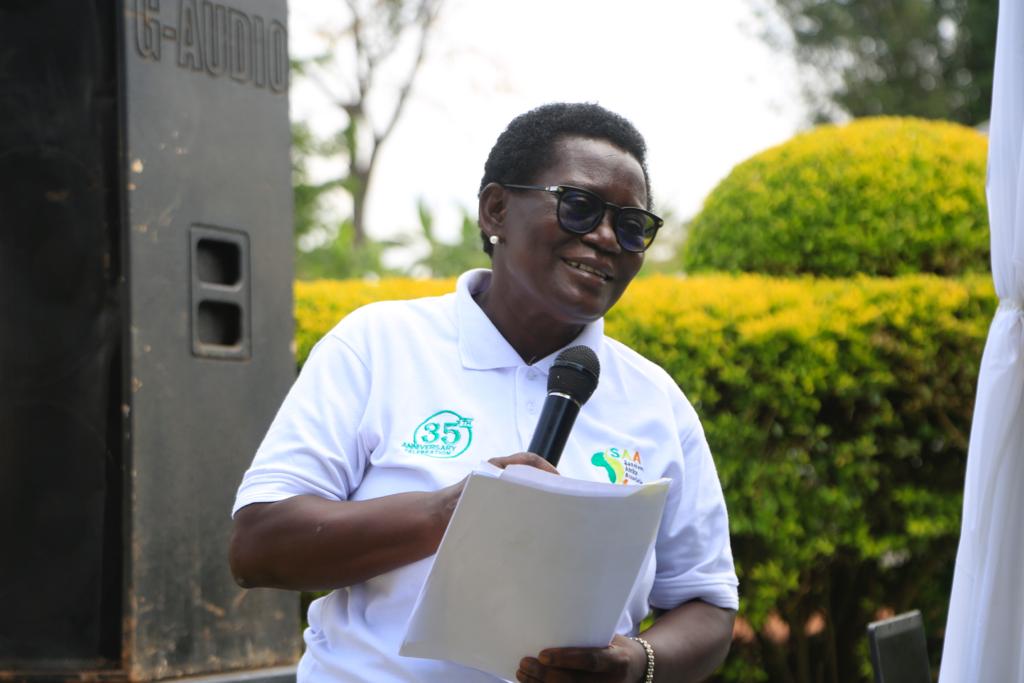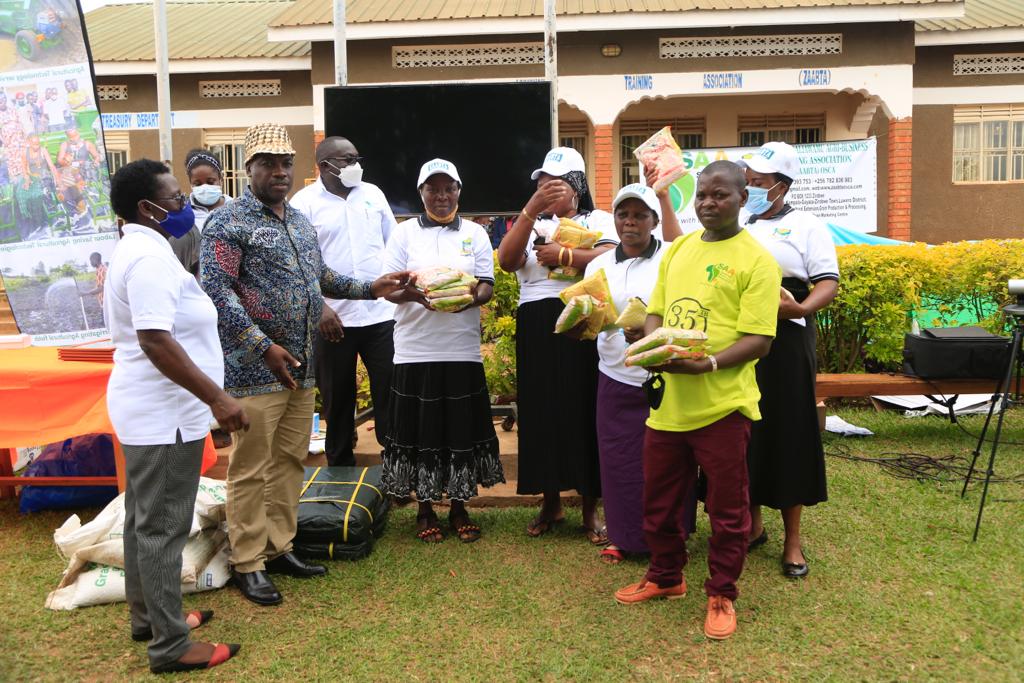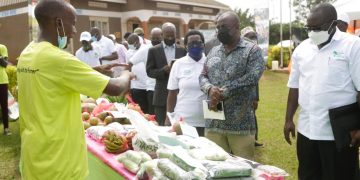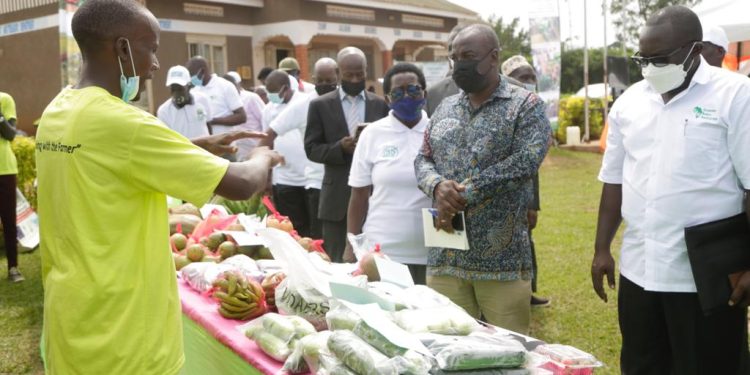The Minister of State for Agriculture, Fred Bwino Kyakulaga has commended Sasakawa Africa Association for its role in supplementing the government’s efforts in transforming the agricultural sector.
“Let me take this opportunity to recognise with gratitude the Nippon Foundation of Japan and the Sasakawa family who have been so gracious as to fund the Sasakawa Africa Association activities to promote agricultural development among rural smallholder farmers in Africa for the last 35 years and Uganda for 25 years, and continue,” the Minister said.
Kyakulaga who was represented by Dr Patience Rwamigisa, the Assistant Commissioner for Agriculture extension services and skills management from the Ministry of Agriculture was presiding over Sasakawa Africa Association’s 35th anniversary in Africa and 25 years in Uganda at the headquarters of Zirobwe Agaliawamu Agri-business Training Association (ZAABTA), a higher-level farmers organization in Zirobwe, Luwero District.
He noted that such Public-Private Partnerships have bolstered the agricultural sector by increasing incomes and employment for farmers through enhanced access to technology in the form of improved inputs, strengthening relations between traders and farmers, and access to agricultural credit.
“Market access is, of course, essential for the PPPs to be effective and strengthens commercially-oriented farmer associations/ remote rural farmers to engage profitably in commercial markets. The One-stop Centre Association Model embraces all this which is also in line with Agro-industrialisation, a key focus under the National Development plan III,” he said.
The Minister also noted that Public-Private Partnerships have agriculturally bolstered the sector by increasing incomes and employment for farmers through enhanced access to technology in the form of improved inputs, strengthening relations between traders and farmers, and access to agricultural credit.
“Market access is of course essential for the PPPP to be effective and strengthens commercially-oriented farmer associations/ remote rural farmers to engage profitably in commercial markets. The One-stop Centre Association Model embraces all this which is also in line with Agro-industrialisation, a key focus under the National Development Plan 3”.
He recognized Sasakawa’s role in promoting extension, farmer education and improvement in crops on the farm.
Dr Joselyn Kabasiita Nyamutare, the Sasakawa Africa Association Uganda Country Director said the Association has over the past 25 years, supported Uganda’s smallholder farmers through transferring improved agricultural technologies, noting that this has enhanced food security and household incomes of smallholder farmers.
With funding from the Nippon Foundation of Japan since its inception,

Sasakawa today operates in 75 districts and reached out to over 1.5 million smallholder households and 400 Sub counties, trained over 4,180 extension agents.
Nyamutaare noted that this has been done in collaboration with various partners and stakeholders that support agriculture at various levels of the value chain.
“Sasakawa programmes operate within the government extension structures and has further strengthened this by establishing Community-Based Facilitators (CBFs), who are selected from farming communities and trained to complement the delivery of extension and advisory services to smallholder farmers,” she said.
The BAAFTA centre manager, Mayambala Godfrey, thanked Sasakawa for helping modernise farming in the rural areas, organise, and equip them with financial management skills.
Sasakawa Africa was born out of a pioneering collaboration between the philanthropist Sasakawa Ryichi, former US president Jimmy Carter, and Dr Norman Borlaug, a Nobel Prize-winning plant specialist who was one of the chief architects of the 1960s “Green Revolution” in South Asia.
Shaken by the terrible suffering caused by the African famines of the mid-1980s, Sasakawa contacted Borlaug to suggest working together to help the continent find solutions and avoid future disasters.
When Borlaug objected that he was already well past retirement age, Sasakawa pointed out that he was ten years older still. Age was no excuse for standing aside, he said.
With support from Carter, for whom African development had been a key concern since he left the White House, SAA was launched as an organization dedicated to boosting food production in sub-Saharan Africa.










